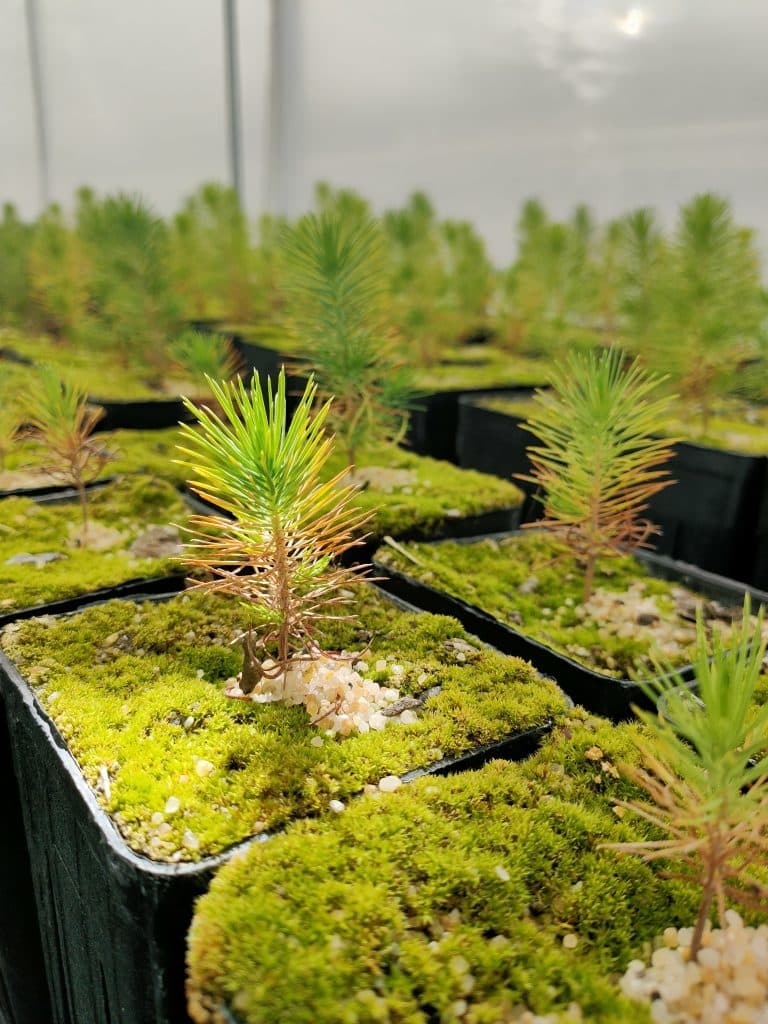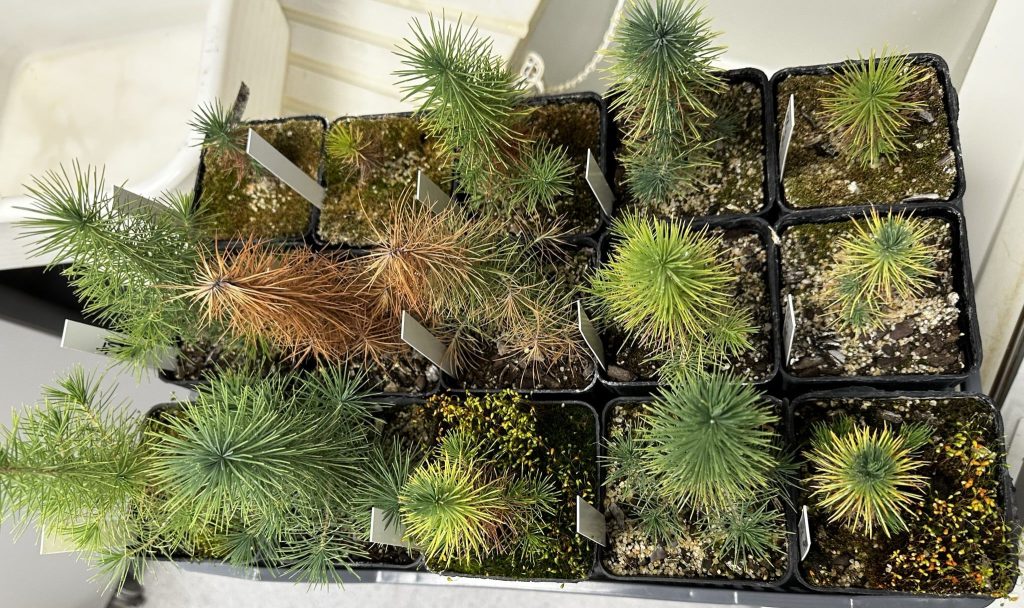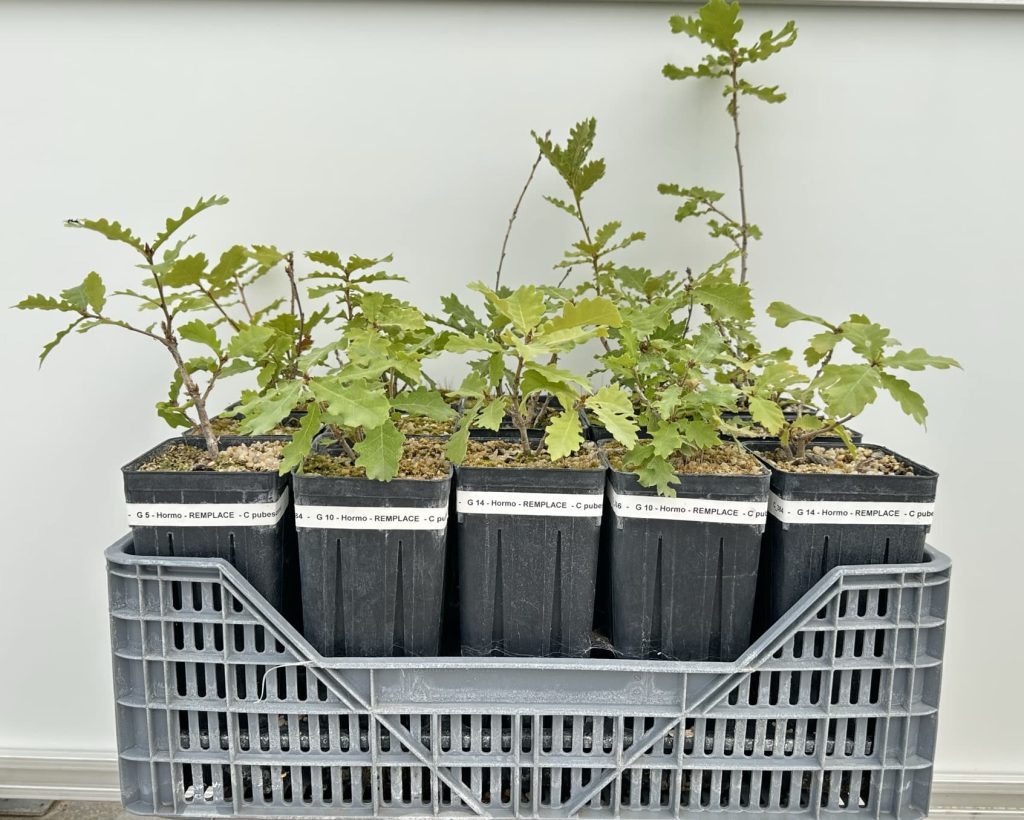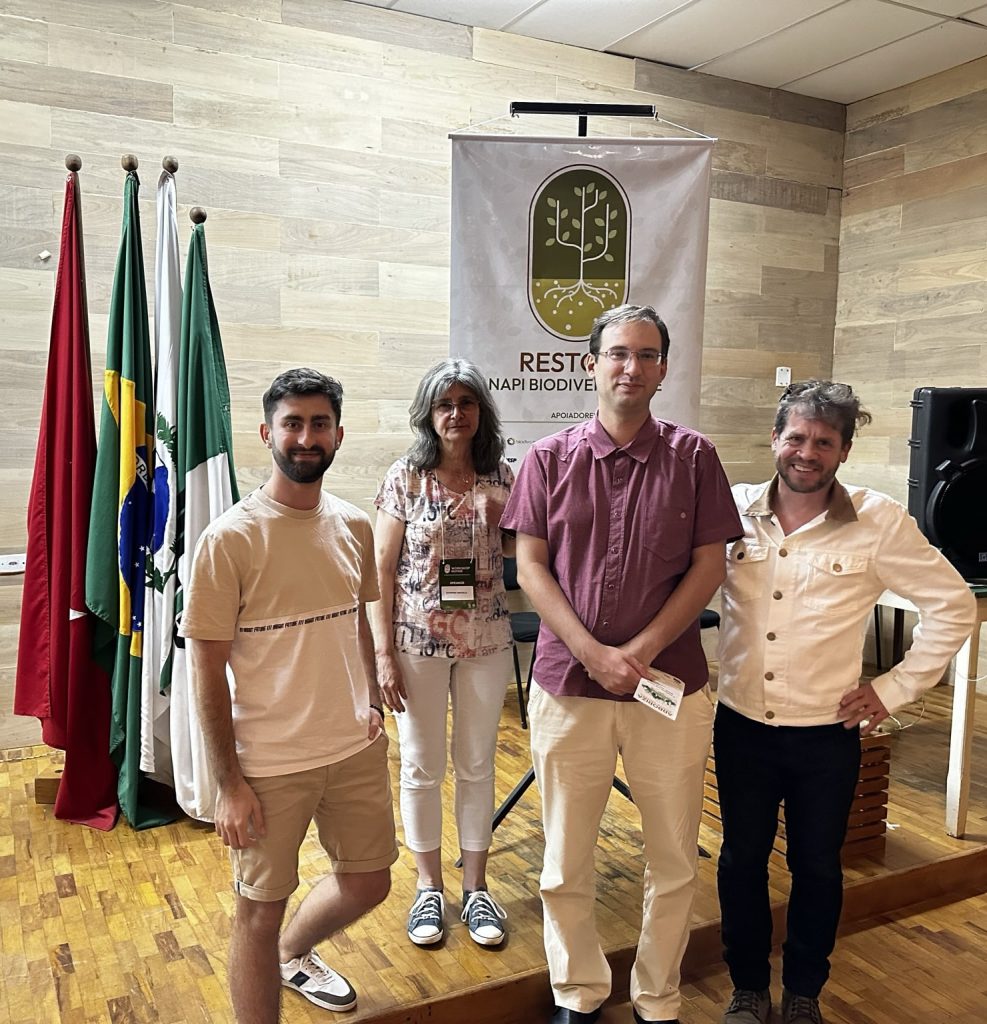You are here : Home City of energies > HOME BIAM > Collaborative projects and networks > RESTORE Project
To restore biodiversity to forest soils and improve the survival of replanted young trees
The RESTORE (natuRe-basEd SoluTions for imprOving REforestation) project aims to study the interactions between plants, soil and microorganisms (microbiomes*) in forest ecosystems facing increased drought stress due to climate change. Our project aims to develop biotechnological solutions based on observation of the nature and functioning of forest ecosystems, in order to improve forest restoration. These solutions are based on the restoration of soil microbial diversity and on plant communication molecules such as hormones and regulators.
Forests provide numerous ecological services: they purify the air, water and wildlife, and above all they sequester carbon to limit global warming, by converting atmospheric CO2, a greenhouse gas, via photosynthesis.
They are, however, subject to the pressures of climate change, the impact of which is combined with increased logging, creating a surge in timber prices that is compromising forest renewal, with an increase in the mortality rate of young trees over the last ten years or so.

Innovative exploration: strengthening forest renewal in the face of climate change

The program began in May 2021 and runs until April 2025, against a backdrop of climate change characterized by numerous fluctuations and sudden, unpredictable changes in climate, particularly detrimental to the survival of tree seedlings, essential for reforestation.
Research is being carried out in parallel on three very different forest systems: Brazilian Atlantic, French Mediterranean and German temperate forests, with a view to uncovering common patterns despite geographical, pedological and biological differences.
In France, the application of biotechnological solutions inspired by nature, as well as the understanding of drought tolerance mechanisms and their impact on the soil microbiome, are currently the subject of nursery trials with the involvement of PRNGF-ONF on the Cadarache site (Pôle National des Ressources Génétiques Forestières – Office National des Forêts), a stakeholder in the project. Solutions based on the application of phytohormones are being explored. The aim of these hormones is to simulate drought, to prepare young tree seedlings to react, and to retain this memory to respond more quickly to subsequent water stress.
The researchers also sampled soils from the Observatoire du Chêne Pubescent (O3HP, Observatoire de Haute-Provence), a study site for the adaptation of Mediterranean forests to climate change, on a partial rain exclusion zone that enables them to simulate predicted climate change in the Mediterranean region and measure its impact on the forest. The bacterial strains isolated from these soils were selected for their tolerance to water stress, but also for their ability to produce molecules that retain water, protect plants or communicate with them. These strains are used in association with trees. By restructuring the microbial communities associated with young trees, drought tolerance is improved, as is soil health.

Soil samples taken at the O3HP site annually during the dry and wet seasons will enable us to study the diversity of bacteria, archaea and fungi, and their activities, to better understand how the microbiome behaves and evolves during a drought, and its resilience when water returns.
What's the current status of testing?
On the French side, the application of biotechnological solutions inspired by nature, as well as the understanding of drought tolerance mechanisms and their impact on the soil microbiome, are currently the focus of nursery trials with the involvement of PRNGF-ONF on the Cadarache site (Pôle National des Ressources Génétiques Forestières – Office National des Forêts), a stakeholder in the project. Results are underway on holm oak and downy oak, species commonly used for reforestation in the south of France. Promising results have been obtained with downy oak in particular, which has shown improved tolerance to acute drought. Other Mediterranean species are also being tested, as greater plant diversity boosts ecosystem resilience.
No added value to research without international collaboration

BIAM’s LEMIRE (Ecologie MIcrobienne de la Rhizophère et Environnements extrêmes team) and the CNRS ECCOREV (ECosystèmes COntinentaux et Risques EnVironnementaux) research federation are joining forces with four Brazilian research teams, UEL (State University of Londrina), UNISO (University of Sorocaba), UNESP (São Paulo State University) and UFABC (Federal University of ABC), as well as HMGU (Helmholtz Zentrum München) in Germany to collaborate on the RESTORE project.
The richness of a study of three forest systems, spanning two continents, confirms the effectiveness of natural solutions in different ecological, social and economic contexts, paving the way for the long-term development of biotechnological solutions for reforestation.
The international multidisciplinary approach (plant ecophysiologists, soil and rhizosphere microbiologists, microbial ecologists, chemists, engineers, economists) optimize the use of research data by sharing information, expertise, knowledge and facilities:
“The rich interdisciplinary nature of such a project offers synergy and complementary expertise that will undoubtedly enhance the quality and impact of our results on a global scale. It also contributes to the training of our students and technicians. These invaluable interactions between international partners considerably enhance their qualifications to meet the challenges of global biodiversity research” say the project’s founders.
RESTORE: An ecological alliance with a socio-political and economic dimension
In the fight against climate change and its undesirable effects, politicians have implemented initiatives such as the Paris Agreement, the United Nations Sustainable Development Goals and the Aichi Biodiversity Targets. RESTORE is perfectly aligned with these political priorities. Indeed, forest restoration is a crucial natural solution for climate change mitigation, as it increases carbon sinks and reduces greenhouse gas levels in the atmosphere.
In line with EU strategy, this approach supports forest resilience, improving access to drinking water through the natural filters of trees and forest soils, and preventing erosion while promoting the optimal functioning of forest ecosystems and biodiversity.
Finally, the economic aspect of the solutions to be developed by this project is analyzed through cost-effectiveness and cost-benefit studies. Indeed, reforestation is all the more costly if severe bad weather compromises seedling growth. It is therefore important to find solutions that increase the survival of the trees in order to ensure the benefits.
No added value without sharing with society
As part of the French law on research programming, the results of scientific work and the methods used to achieve them must be shared with society, notably through scientific, technical and industrial culture (CSTI) initiatives. To this end, Restore’s work is regularly the subject of workshops at events such as the Fête de la Science and the Rencontres Enseignants Chercheurs.
* Bacteria, fungi, viruses, and other unicellular organisms present in the soil. They play an essential role in the health of forest systems.